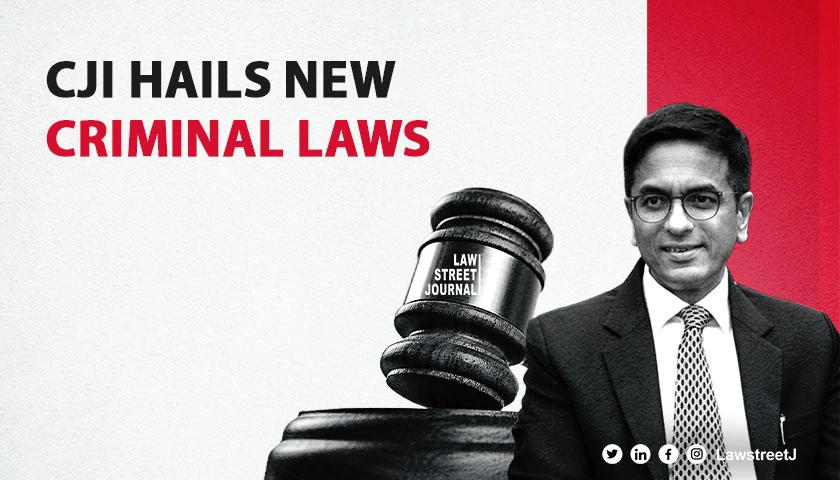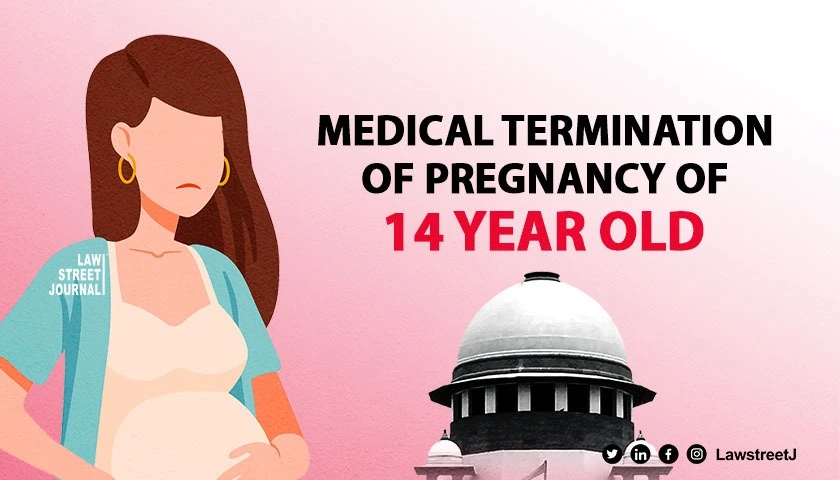A Division Bench of Justices A. M. Khanwilkar and Dinesh Maheshwari have on May 19, 2020, while upholding the Delhi High Court judgment, which had, in turn, upheld the Trial Court judgment, in the matter of Kavita Khanwar v. Mrs. Pamela Mehta & Ors. has delivered a significant and exhaustive judgment on the issues surrounding the execution of a Will and grant of probate in the matters of testamentary succession under the Indian Succession Act, 1925.
The law of testamentary succession is codified under the Indian Succession Act in chapter VI of Part VI of the Act (Sections 74 to 111) which deals with the construction of Wills and Part IX of the Act deals with the grant of Probate/Letter of Administration.
Background of the Case:
The Additional District Judge, West District, Tis Hazari Courts, Delhi had rejected the appellant’s prayer for grant of probate in relation to the Will dated May 05, 2003, executed by the mother of the contesting parties. The prayer declined concurrently by the Trial Court and by the High Court essentially after finding several unexplained suspicious
circumstances surrounding the Will in question. The appellant was appointed as the executor of the Will in question and who was, admittedly, the major beneficiary thereunder.
The Parties and The Witnesses:
- The testatrix: Smt. Amarjeet Mamik, wife of Lt. Col. (Rtd.) D. S. Mamik had expired on May 21, 2006, leaving behind two daughters and one son, who are the contesting parties.
- The appellant (A): Smt. Kavita Kanwar, the younger daughter of the testatrix. She is shown as the executor of the Will in question and she is the major beneficiary, though with certain conditions. She had filed the petition seeking probate.
- Respondent No. 1 (R1): Smt. Pamela Mehta, the elder and widowed daughter of the testatrix. The conditions stated in the contested Will are purportedly aimed at making a provision for her residence.
- Respondent No. 2 (R2): Col. (Rtd.) Prithiviraj Mamik, the son of the testatrix. By way of bequeath in the Will in question, he has been given ‘credit balance’ lying in the bank accounts of the testatrix but with a clarification that he shall not inherit any portion of the immovable assets of the testatrix.
- The attesting witnesses:
- Shri. Urvinder Singh Kohli, a friend of the appellant and his daughter got married to the son of a cousin of the appellant; and
- Major General Manjit Ahluwalia, who was a son of the sister of the testatrix.
The Immovable Property Involved:
- Defense Colony, New Delhi admeasuring 325 square yards and comprising of a building having a ground floor, first floor, terrace, and annexe block of garage and servant quarter. The whole property originally belonged to the testatrix’s husband who had in his lifetime, gifted the ground floor of this property to the appellant by way of a registered Gift Deed, and thereafter, he bequeathed the remaining in favor of his wife through a registered Will. After his demise, the testatrix became the owner of the first floor and other portions of the said property except for the ground floor.
- At the time of execution of the contested Will, the testatrix was residing at the ground floor of this property (which had otherwise been gifted to the appellant by her father). The first floor of this property (which had otherwise been bequeathed to the testatrix by her husband) has remained in occupation of R1.
The Will in Question:
Through Will, the Testatrix had bequeathed the first floor and other portions except for the ground floor of the said property in the appellant’s favor with directions to carry out one of the two options, i.e., either to construct a residential facility on the terrace of the first floor of the said property and handover the possession of it to R1 or to demolish the said building and to re-construct and give the highest floor of the said building to R1 while retaining the terrace rights thereon; and had bequeathed the balance in her savings bank account maintained with Central Bank of India in favor of her son, R2.
View of the Trial Court:
Appellant had on November 06, 2006, filed petition under Section 276 of the Indian Succession Act, 1925 for grant of probate of the Will. R1 had contended, inter alia, that the Will in question was forged and fabricated, where the appellant was the major beneficiary as also the executor; that there was no reason for exclusion of R1 and R2 and grandchildren from the legacy; and that the property in question being an ancestral property, belonged to all the legal heirs of late Shri D.S. Mamik (husband of testatrix). R2 had contended that there existed no dispute between testatrix and himself and there was no reason for his mother to have excluded him from the Will. He also contended that as the property bequeathed in favor of the appellant was worth crores of rupees and hence, it was impossible to comprehend that his mother had left him merely a sum of Rs. 5,77,389/- when the relations between him and his mother were cordial.
The Appellant had contended that she didn’t have prior knowledge of the will made by her mother. She also asserted that her parents had special love and affection for her and that had been the reason for them having gifted and bequeathed the said property to her only.
Trial Court had to consider whether the Will was proper and valid or forged and fabricated.
The Trial Court took into account various circumstances that appeared to be suspicious.
- If propounder of the Will takes an active part in the execution of the Will and receives a substantial benefit under it, then such a circumstance is generally treated as a suspicious one.
- The exclusion of the only son from the immovable property. The testatrix would not even have given him the amount in the bank account if their relations were strained.
- The other daughter of the testatrix (R1) virtually did not get any substantial share.
- The manner of writing and execution of the Will and the fact that the testatrix had not completed her education and was not computer literate, this was relevant as few portions of the Will were handwritten and there were traces of pencil lines beneath the handwritten portions, making out that the testatrix was asked to write as per dictation on the particular portion; and that certain portions of the Will contained technical and legal words not known to a layperson.
- The attesting witnesses were unreliable and the possibility of one of the witnesses being bribed was not ruled out as the appellant had given an amount of Rs. 25,000/- to his daughter.
- The contradictions in the statements of the witnesses, which raised doubts as to the genuineness to the story of the appellant. (both the witnesses in the Will had deposed in favor of the appellant).
- There were vague recitals in the Will such as, ‘other portions of the building’ when the said property consisted only of the ground floor and first floor.
Trial Court found that the appellant had not been able to remove the suspicions and hence, dismissed the petition.
View of the High Court:
Being aggrieved by the judgment of the Trial Court, the appellant approached the High Court which is reported in 211 (2014) DLT 448. Based on the settled principles from the precedents of Supreme Court, the HC observed that “mere proof of signatures on the Will was not sufficient to prove its due execution, and it was the duty of the party seeking probate to satisfy the conscience of the Court as regards due execution of the Will by the testator and for that matter” and proceeded to formulate the following point for consideration: “The question for consideration is whether the evidence led by the appellant i.e., propounder satisfies the conscience of the court that the Will in question was duly executed.”
Observations of the High Court:
- Nothing was brought on record to show that the testatrix was aware of the contents of the Will.
- The testatrix did not discuss the contents of the Will with the witnesses nor did they question her about the same; hence from their testimonies too, nothing was proved if the testatrix understood the contents of the document in question.
- The Will was partly typed and partly handwritten with no plausible explanation for the same, indicating that it was not prepared in one sitting. The first and last para of Will were in the handwriting of the testatrix.
- Nothing was available in the petition or evidence of the appellant as to why the major portion of immovable property was given to her though she was not staying with the testatrix for about 20- 22 years. On the other side of the picture, the widowed daughter of the testatrix (R1) was, at the relevant time, living on the first floor of the house where testatrix was residing; and, as per the evidence on record, R1 was looking after her mother (cancer patient) and was taking her to Army Hospital. It was rather inexplicable that R1 was left at the mercy of the appellant; that in the Will in question, no time limit was provided as to when the appellant would construct the floors and about the nature and quality of the construction.
- R1 resided only one floor above the testatrix and was also maintaining good relations with her, but only the appellant was called at the time of execution of the Will and no reason was provided for not calling R1. On the contrary, R1 was made aware of the execution of the Will only after three years from the date of its execution. The execution of the Will seemed to be in secrecy, without informing the other legal heirs.
After taking note of the aforesaid inexplicable features, unusual circumstances and unreliability of the witnesses, the High Court found that the appellant was unable to satisfy the conscience of the Court in regard to such suspicious circumstance and proceeded to dismiss the appeal and held that mere signature on the Will by the testatrix was not sufficient to prove that the said
Will was duly executed after understanding the contents thereof.
View of the Supreme Court:
Being aggrieved by the judgment of the High Court, the petitioner-appellant had preferred an appeal by special leave before the Supreme Court.
At the outset the Court dealt with the contentions by the appellant regarding R1 that her status remains that of a defendant who had not filed the written statement and who was not at issue; and hence, the contentions urged on her behalf needed no consideration and the evidence led by her remained inadmissible. But the Court rejected the argument and held that
“probate proceeding is not merely inter-partes proceeding but leads to judgment in rem and, therefore, even when no one contests, it does not ipso facto lead to grant of probate. The probate is granted only on proof of Will as also on removal of suspicious circumstances, if there be any, to the final satisfaction of the conscience of the Court.”
At the outset, the SC observed that any of the factors taken into account by the Trial Court and the High Court, by itself and standing alone, could not operate against the validity of the propounded Will, but the quality and nature of each of these factors and then, the cumulative effect and impact of all of them upon making of the Will with the free agency of the testatrix would have bearing on the question whether to grant probate.
The first and very basic question cropped up was the reason for the testatrix being desirous of providing unequal distribution of her assets by giving a major share to the appellant in preference to her other two children.
To this, the SC taking realist view answered,
“Even if the parents had special liking and affection towards the appellant, as could be argued with reference to the gift made by the father in her favor of the ground floor of the property
in question, it would be too far stretched and unnatural to assume that by the reason of such special affection towards appellant, the mother drifted far away from the other children, including the widowed daughter who was residing on the upper floor of the same house and who was taking her care. In the ordinary and natural course, a person could be expected to be more inclined towards the child taking his/her care; and it would be too unrealistic to assume that special love and affection towards one, maybe blue-eyed, child would also result in a person leaving the serving and needy child in lurch.”
Admittedly the appellant was living away and in a different locality for about 20-22 years, whereas testatrix was residing at the ground floor of the building, and R1 was on the first floor. In this regard, the Court came to conclusion that “there was no reason that in the normal and ordinary course, the testatrix would not have included the respondent No.1 in execution of the Will in question, particularly when she was purportedly making adequate arrangements towards the welfare of respondent No.1”.
Regarding the stipulations in the Will for making resident for R1, no time frame was provided nor the nature, quality, and extent of construction. It was also not clear as to what would happen in the event of the appellant not carrying out such construction, that is, as to whether she would stand divested of the property already bequeathed? This made the Court state that this provision was “illusory and an eyewash because on the practical side, the provision is inexecutable and unenforceable; and the respondent No.1 is not likely to get anything thereunder.”
One of the features that came to the Supreme Court’s notice was that, in the Trial Court, R1 and R2 had contended that there was the third page of the Will and the Appellant had denied it alleging that it had been fabricated by the respondents. But surprisingly the appellant took a strange turnabout and volte-face in the High Court, where she had asserted that she had indeed acted as per the “directions” of the testatrix in the said third page when it was alleged that she had made payment of a sum of Rs. 25,000/- to the daughter of one of the attesting witnesses.
Based on the above observations, the Court was satisfied that the Will was surrounded by various suspicious circumstances which were material in nature and no explanation was tendered in that regard by the appellant. The Court also remarked that not only the appellant had failed to remove and clear the suspicious circumstances, but instead had contributed her own part in lending more weight to each and every suspicious circumstance.
Dismissing an appeal and denying the grant of probate, the Court imposed a cost of Rs. 50,000/-payable equally to both the respondents.







